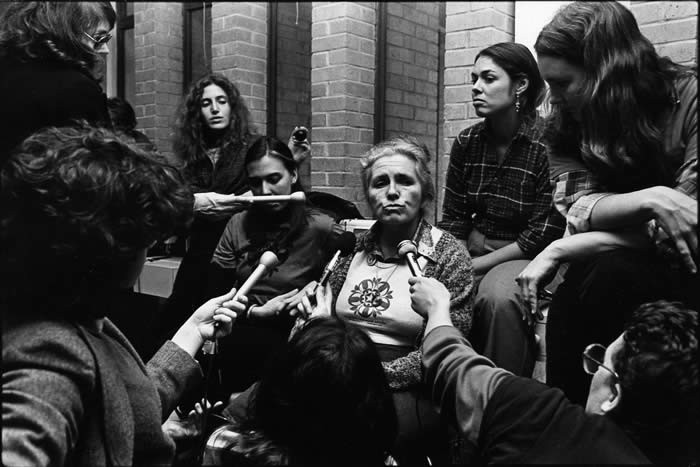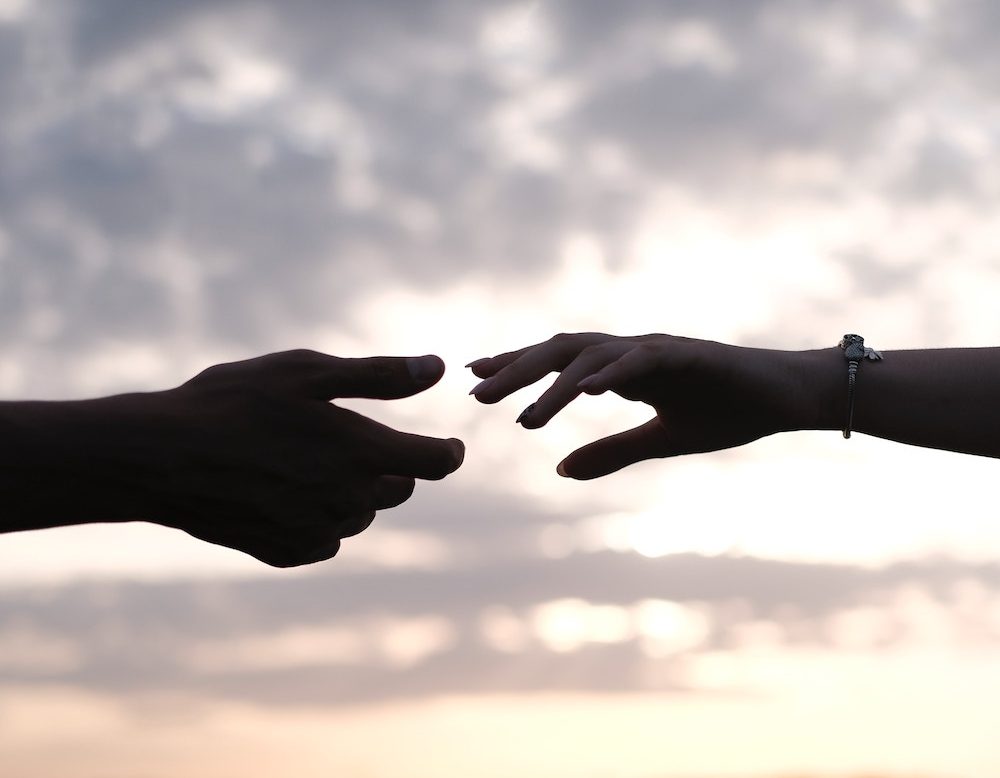Lit Mags
Wants
by Grace Paley, recommended by Dani Shapiro

EDITOR’S NOTE BY DANI SHAPIRO
When I think of the work of Grace Paley — a woman who appeared in my life like a grandmotherly guardian angel when I was a lost twenty-something M.F.A. student taking my first baby steps — the phrase that enters my mind isn’t a particularly literary one: generosity of spirit. I met Grace when I was a freshman at Sarah Lawrence College, where she taught. And though she was my teacher of writing, Grace was much more than that to me. She was my teacher of life. How to be a woman, a wife, a mother, a friend, a concerned citizen? How to walk around in the skin of a writer — which is to say often anguished, easily bruised — and turn that sensitivity into a powerful lens? To study with Grace often meant arriving at her workshop only to be greeted by a note tacked to the door: Class canceled. Grace is in jail. Civil disobedience, the imperative to take action, the attempt not only to write the wrongs, but to right the wrongs, being an object lesson more important than any element of craft. Imaginative empathy has a hollow ring to it, when not backed up by actual empathy.
Grace’s sentences are identifiable a mile away. She packs more humanity, longing, regret, humor and pathos into the three pages that make up “Wants” than many doorstop novels, and yet the art is invisible. Her enormous control, her exquisite precision, are deployed entirely in the service of her characters’ internal lives. Her prose limns the boundary between worldly concerns (her nameless narrator mourns her failure to make good on her promise to children that she would end the war before they reached adulthood) and the heart, stripped bare, of this same woman who greets her ex-husband by saying, “Hello, my life.” Time is Paley’s subject in “Wants.” Time and its inexorable passage, its cruel beauty. Marriages fail despite the best intentions of flawed men and women. Children grow up. Wars continue to rage. The sycamore trees outside her window grow from saplings into their prime. Books are written that capture their place and moment, and yet time marches on.
In re-reading “Wants” — a story I know nearly by heart — what I know in a place beyond knowing is that Grace Paley’s generosity of spirit is what infuses every word of “Wants,” and indeed, each of her masterful short stories. And it occurs to me that perhaps generosity of spirit should be a literary term. If Grace Paley is still read two hundred years from now, as I believe she will be, it is that very spirit that will contribute to the timelessness of her work. Our circumstances change. We fail each other, we age, we die. Hope arcs gently, or not-so-gently, into regret. And yet, and yet our hearts continue to yearn until they stop beating. I’m sitting in a café as I write these words, and I can just about see Grace plopped down in the chair across the table from me. She’s wearing a big, nubby cardigan and she rakes a hand through her white halo of hair. I want to ask her what she thinks about all this, but I already know the answer. She shrugs, deflects, as if to say, What do I know? But there’s a glint in her eye, a depth of wisdom wise enough to know humility. And then, just like that, she’s gone.
Dani Shapiro
Author of Still Writing: The Perils and Pleasures of a Creative Life
Wants
Grace Paley
Share article
by Grace Paley, recommended by Dani Shapiro
I saw my ex-husband in the street. I was sitting on the steps of the new library.
Hello, my life, I said. We had once been married for twenty-seven years, so I felt justified.
He said, What? What life? No life of mine.
I said, O.K. I don’t argue when there’s real disagreement. I got up and went into the library to see how much I owed them.
The librarian said $32 even and you’ve owed it for eighteen years. I didn’t deny anything. Because I don’t understand how time passes. I have had those books. I have often thought of them. The library is only two blocks away.
My ex-husband followed me to the Books Returned desk. He interrupted the librarian, who had more to tell. In many ways, he said, as I look back, I attribute the dissolution of our marriage to the fact that you never invited the Bertrams to dinner.
That’s possible, I said. But really, if you remember: first, my father was sick that Friday, then the children were born, then I had those Tuesday-night meetings, then the war began. Then we didn’t seem to know them any more. But you’re right. I should have had them to dinner.
I gave the librarian a check for $32. Immediately she trusted me, put my past behind her, wiped the record clean, which is just what most other municipal and/or state bureaucracies will not do.
I checked out the two Edith Wharton books I had just returned because I’d read them so long ago and they are more apropos now than ever. They were The House of Mirth and The Children, which is about how life in the United States in New York changed in twenty-seven years fifty years ago.
A nice thing I do remember is breakfast, my ex-husband said. I was surprised. All we ever had was coffee. Then I remembered there was a hole in the back of the kitchen closet which opened into the apartment next door. There, they always ate sugar-cured smoked bacon. It gave us a very grand feeling about breakfast, but we never got stuffed and sluggish.
That was when we were poor, I said.
When were we ever rich? he asked.
Oh, as time went on, as our responsibilities increased, we didn’t go in need. You took adequate financial care, I reminded him. The children went to camp four weeks a year and in decent ponchos with sleeping bags and boots, just like everyone else. They looked very nice. Our place was warm in winter, and we had nice red pillows and things.
I wanted a sailboat, he said. But you didn’t want anything.
Don’t be bitter, I said. It’s never too late.
No, he said with a great deal of bitterness. I may get a sailboat. As a matter of fact I have money down on an eighteen-foot two-rigger. I’m doing well this year and can look forward to better. But as for you, it’s too late. You’ll always want nothing.
He had had a habit throughout the twenty-seven years of making a narrow remark which, like a plumber’s snake, could work its way through the ear down the throat, half-way to my heart. He would then disappear, leaving me choking with equipment. What I mean is, I sat down on the library steps and he went away.
I looked through The House of Mirth, but lost interest. I felt extremely accused. Now, it’s true, I’m short of requests and absolute requirements. But I do want something.
I want, for instance, to be a different person. I want to be the woman who brings these two books back in two weeks. I want to be the effective citizen who changes the school system and addresses the Board of Estimate on the troubles of this dear urban center.
I had promised my children to end the war before they grew up.
I wanted to have been married forever to one person, my ex-husband or my present one. Either has enough character for a whole life, which as it turns out is really not such a long time. You couldn’t exhaust either man’s qualities or get under the rock of his reasons in one short life.
Just this morning I looked out the window to watch the street for a while and saw that the little sycamores the city had dreamily planted a couple of years before the kids were born had come that day to the prime of their lives.
Well! I decided to bring those two books back to the library. Which proves that when a person or an event comes along to jolt or appraise me I can take some appropriate action, although I am better known for my hospitable remarks.








